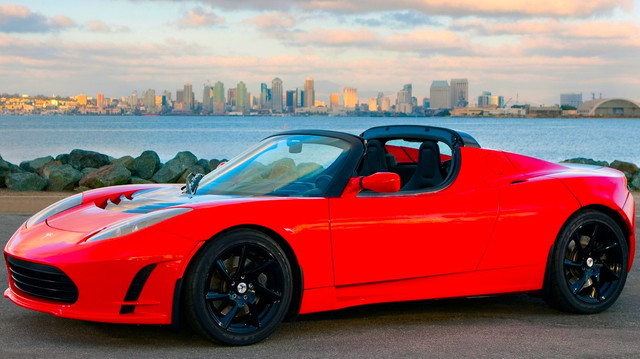Tesla Sales Regulations Harm Consumers
< < Go Back
Government policies should foster economist Joseph Schumpeter’s “creative destruction” — the disruptive force that drives economic growth as new entrepreneurs enter markets and take the place of older companies. However, the automobile market is one of the most heavily regulated markets in the United States, and state laws across the country that prevent direct sales only stifle competition and ultimately hurt consumers, says policy expert Derek Khanna.
This month, New Jersey — following in the line of Virginia, Maryland, Texas and Arizona — banned Tesla from selling cars directly to New Jersey consumers.
– Fifty-seven million Americans live in states where Tesla cannot legally sell its cars.
– These laws prevent Tesla — and other market participants — from selling cars online, directly to consumers. Instead, middlemen are required to sell the cars.
– In Texas, Tesla cannot even direct buyers to their Web site, let alone provide test drives or discuss prices. Employees can talk to buyers about electric cars in general, but they cannot provide a would-be purchaser with information on how to actually go about purchasing one. Texas only allows the car company to have car galleries at which consumers can view vehicles.
Regulations in New Jersey are now similar. Not only do these laws hurt consumers who cannot purchase the cars that they would like to buy, but they impact all of the people who would be employed by Tesla were it not for these regulations. Furthermore, competitors do not emerge with new sales models.
Why do states restrict these sales? Lawmakers say consumer protection, yet Tesla is the highest-rated car manufacturer by Consumer Reports.
– The regulations increase the barriers to entry for new car manufacturers, and they increase cars’ final sales prices.
– A 1986 Federal Trade Commission study found that these regulations increase prices by 6 percent, costing $6.9 billion in 2014 dollars.
– According to a 1992 study by economist Richard Smith, the regulations may cost $22 billion in 2014 dollars.
States need to remove these government-imposed monopolies. The United States led the world in the automobile market in the 20th century, and competition from companies like Tesla could put the country in the lead for the future.
More From NCPA:




